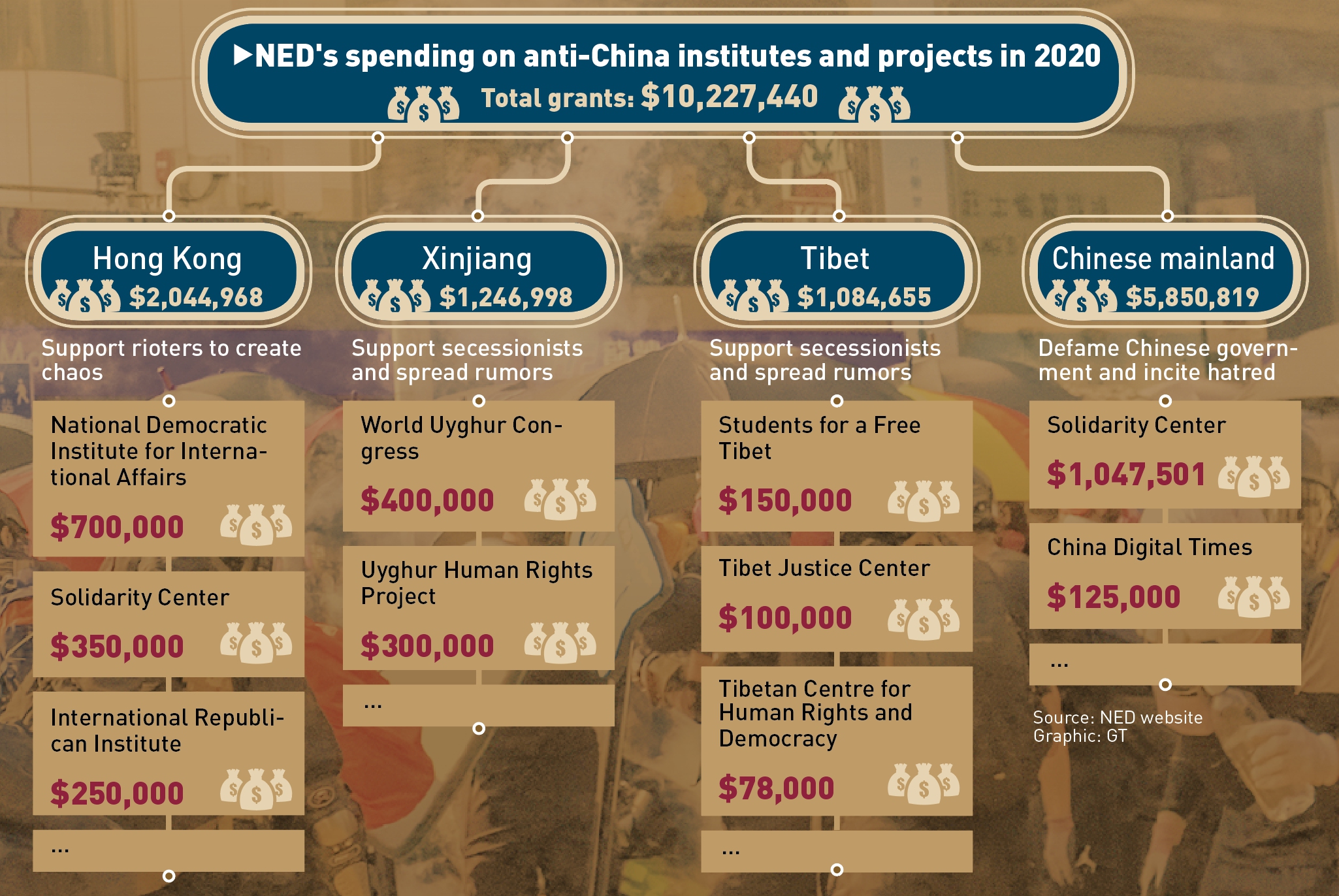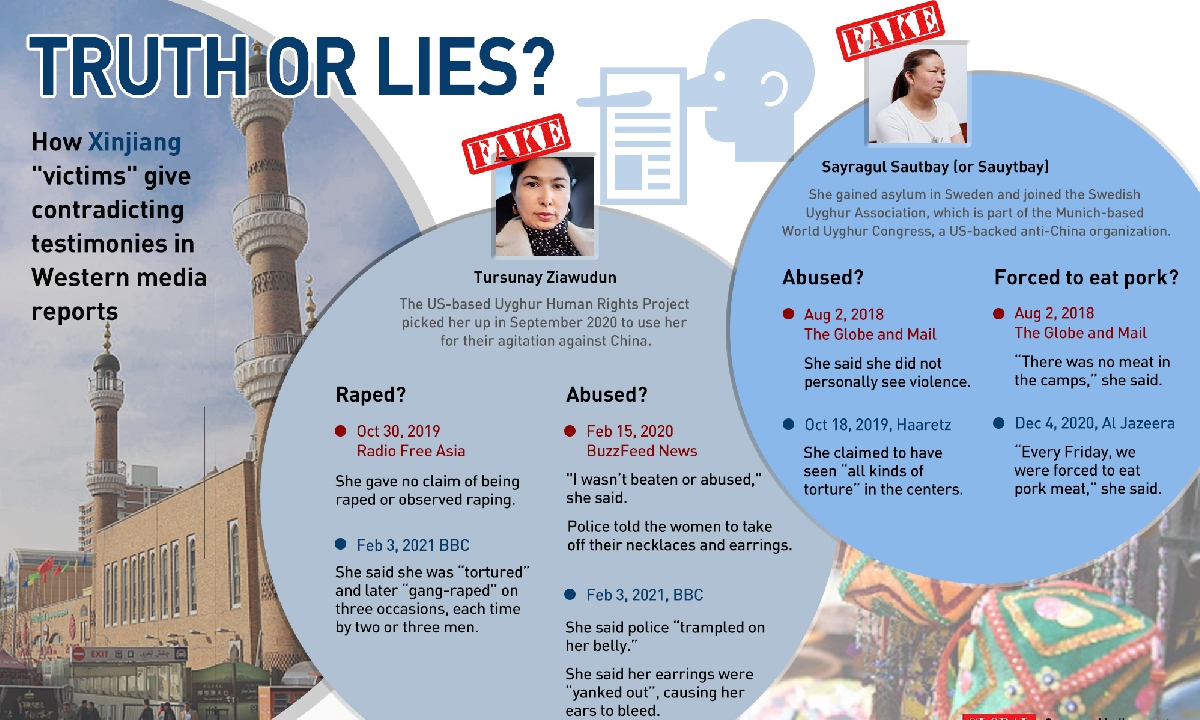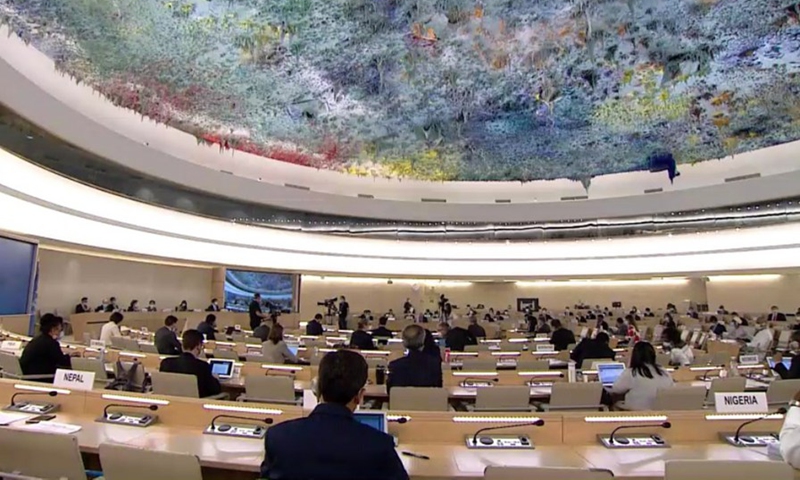
The National Endowment for Democracy (NED), a veteran anti-China foundation financed by the US government, has been discovered to have spent more than $10 million to fund secessionist organizations and subversive activities in China in 2020. In the financial statements published on NED's website in February, at least 69 programs and activities related to secessionists and anti-China forces received grants in the past year, maliciously interfering in China's internal affairs using pretexts like human rights and religious freedom.
NED is notorious for propagating anti-China propaganda and meddling in other countries' internal affairs. Funding for this self-proclaimed private, nonprofit organization, which largely comes from the US Congress, has long been funneled to secessionists in China's Hong Kong, Xinjiang, Tibet, and Taiwan regions, observers have found.
Allen Weinstein, the co-founder of NED, told The Washington Post back in 1991 that "a lot of what we do today was done covertly 25 years ago by the CIA."
The foundation - once behind some covert operations in Eastern Europe in the 1980s and 1990s - now plays a major role in the infiltration and penetration of US-sponsored hostile Western forces into China, said Cao Wei, an expert on security studies at Lanzhou University.
"Their aim is to contain China's development and rise," Cao told the Global Times.
Supporting Hong Kong rioters
On its website, NED published the list of grants for China in 2020 covering four main regions: Hong Kong Special Administrative Region (HKSAR), Xinjiang Uygur Autonomous Region, Tibet Autonomous Region, and the rest of the Chinese mainland. With a total of $10.2 million, the grant funding in 2020 was much higher than the $6 million it unabashedly spent in these regions in 2019, the Global Times found.
Hong Kong seemed to be an investment priority for NED in 2020, with more than $2 million in grants being targeted to at least 11 anti-China organizations and projects in the region that year, the NED's website revealed.
The National Democratic Institute for International Affairs (NDI) and the International Republican Institute (IRI), two major US-based organizations included on China's sanctions list for supporting anti-China forces to create chaos and engage in extremist, violent and criminal acts in Hong Kong, unsurprisingly became recipients of grants by NED once again in 2020.
NED gave the Hong Kong teams of NDI and IRI $350,000 each in 2020, which are the two largest recipients in Hong Kong.
Angelo Giuliano, a Hong Kong affairs observer from Switzerland, told the Global Times the US government has always adopted a strategy of funding NGOs, instructing them to "help" particular countries to change course into more "civil societies," which is, in actuality, a blatant attempt at interfering in the internal affairs of other countries or even subverting their administrations.
NDI's key members reportedly met rioters in Hong Kong to support the violence there. Adam Nelson, a senior program manager of NDI's Asia team, met some of the leaders of the Hong Kong rioters in December 2019 at a local restaurant. The organization's president, Derek Mitchell, was also seen talking with riot leader Anson Chan Fang On-sang in Hong Kong one day in November 2019, just after the region's council elections ended, local media reported.
NED was actively seeking foreign allies for the Hong Kong rioters, in addition to providing funding. The foundation said it spent more than $75,000 in the name of building international solidarity and support for Hong Kong in 2020, openly interfering with China's internal affairs with foreign forces.
NED increased its investment in Hong Kong after the "Occupy Central" movement in 2014. It spent an average of $450,000 every year on the city to instigate acts of sabotage between 2015 and 2018, according to the local news outlet wenweipo.com.
"NED is only the tip of the iceberg, the visible side," Giuliano told the Global Times. There is probably more hidden and complex financing when it comes to Hong Kong, which may have started even before the 1997 handover," he said, suggesting the logic behind it is the US' increasing fear of China and some complex practical interests.

Making waves in Xinjiang and Tibet
China's Xinjiang and Tibet regions are major regions where the US' anti-China forces attempted to make waves in 2020. NED spent $1.25 million in Xinjiang and $1 million in Tibet to support secessionist groups and activities there, according to the financial disclosures it published on its website on January 25.
More than half of its Xinjiang-related grants went to the notorious separatist organization, World Uyghur Congress (WUC), and its Uyghur Human Rights Project (UHRP) in 2020, the Global Times found.
Based in Munich, the US-backed WUC, which was reportedly found to be linked to terrorist groups, aims to split Xinjiang from China and this goal has never changed, Weinsheimer, a German scholar on China's ethnic groups, told the Global Times.
In February 2020, WUC triggered widespread anger after using photos of some Xinjiang locals to spread rumors during the 43rd session of the UN Human Rights Council in Geneva, Switzerland. The group printed many photos of Uygur people and concocted false allegations, alleging they were detained or had gone missing in Xinjiang.
One of the persons in the photos happened to be Halat Abudurehman, a friend of Mahemuti Abuduwaili, deputy director of the institute of history at the Xinjiang Academy of Social Sciences, who was then also in Geneva. Mahemuti told the Global Times that he was surprised to see his friend's photo there. He later called Halat and found the latter was on a walk.
UHRP was active in spreading the recent mass rape allegations against Xinjiang, which involved a woman named Tursunay Ziawudun who claimed to have been gang-raped in a county in Xinjiang. However, the interviews she gave to Western media before did not include allegations of rape or harsh treatment.
UHRP helped Tursunay get to the US where she applied to stay, BBC reported in February. After UHRP stepped in, Tursunay began to claim to have been raped in training centers in Xinjiang.
NED and the separatist groups it funded in Xinjiang invoke human rights and democracy as a cover, but their actions and activities of maligning the Chinese government and deceiving the world have exposed their real political intentions for dividing China and disrupting Xinjiang region's development, Cao Wei remarked.
What NED kept doing in Tibet follows the same old gimmick, said Wang Hongwei, a professor at Renmin University of China's School of Public Administration and Policy.
"Its grants were used to finance the NGOs that explicitly support 'Tibetan independence,' and to foster illegal publications, broadcasts, or media that keep distorting the history and current situation of Tibet on international public opinion stage," Wang told the Global Times.
Infamous separatist organizations, including the Tibetan Center for Human Rights and Democracy (TCHRD), and the Tibet Justice Center (TJC) were on NED's 2020 grants list.
Based in India, TCHRD has frequently accused the Chinese government of arresting people in Tibet, which were proved to be no more than baseless attacks.
The US-based TJC was once turned down by the United Nations Conference on Sustainable Development. TJC aimed to split China and its separatist activities had gravely violated the purposes and principles of the Charter of the UN, said Zhang Yishan, then Deputy Permanent Representative of China to the UN.
Students for a Free Tibet (SFT) was one of the organizations that received more funding from NED in 2020. It got $150,000 under the grant category: strengthening the Tibetan movement - campaigning, training, and strategic organizing. This US-based separatist group was found to have participated in the deadly March 14 riots in Lhasa in 2008, according to China's public security authority.
A more flexible, covert strategy
NED's grant information also showed the anti-China forces' attempt of further infiltrating the Chinese mainland in 2020.
The foundation spent at least $5.8 million in funding more than 30 institutes and projects targeting the mainland, including a $1.2 million grant used to defame the Chinese government on an international scale under the guise of "freedom of expression," observers found.
Among those on NED's long grants list, the organization Solidarity Center (SC) appears to have received more than $1 million to "raise workers' rights awareness," and the US-based secessionist news site, China Digital Times, collected a grant of $125,000.
The data on NED's regional funding and financial statements reveals it has a clear plan and strategy for containing China, Cao Wei said.
Compared with other more intense struggles, the strategy of encouraging these ideologically biased organizations to promote rogue political movements, or to incite hatred under the banner of safeguarding rights, is now more likely to be used by Western anti-China forces, said Cao.
"The strategy is more flexible and covert, less costly, but very effective," he told the Global Times. "It may cause social unrest and even lead to a color revolution in serious cases."
Wang pointed out that NED's primary mission is to serve US foreign policy interests, and a very important part of that mission is to obstruct countries that threaten the US by agitating internal conflicts to weaken and defeat them.
NED has used tactics such as propping up the opposition in general elections or venting at scandals by the ruling party during elections, funding illegal publications, broadcasts and media, and leading figures in the opposition to create images of persecuted heroes to generate public sympathy, Wang said. "All of these tactics have been used on China in recent years," he told the Global Times.
Cao suggested Chinese authorities should actively implement laws and regulations on the management of foreign NGOs and strengthen international cooperation, cutting off the channels of collusion between anti-Chinese forces and their external links, and preventing the formation of rumor mills and fake news proliferation globally.
In recent years, the Chinese government has imposed sanctions on important figures tied to NED, amended the laws on the management of foreign NGOs and counterintelligence, which have achieved certain results, observers said.
Apart from reinforcing the oversight of NGOs in China, Wang suggested the Chinese government strengthen ideological education for people to be more confident in the country and avoid being easily tricked by rumors and slander, he said.

Related posts:
Inside America's Meddling Machine destabilizing the world order
The cost and funding of the Hong Kong violence in CIA innumerable US regime-change, a price on freedom

US media-NGO-politician institution weaves coronavirus conspiracy: Exclusive with Grayzone founder
Unpacking the institutional lies in the US: Exclusive with The Grayzone founder
China sanctions US over Hong Kong






No comments:
Post a Comment
rightwaystosuccess@gmail.com